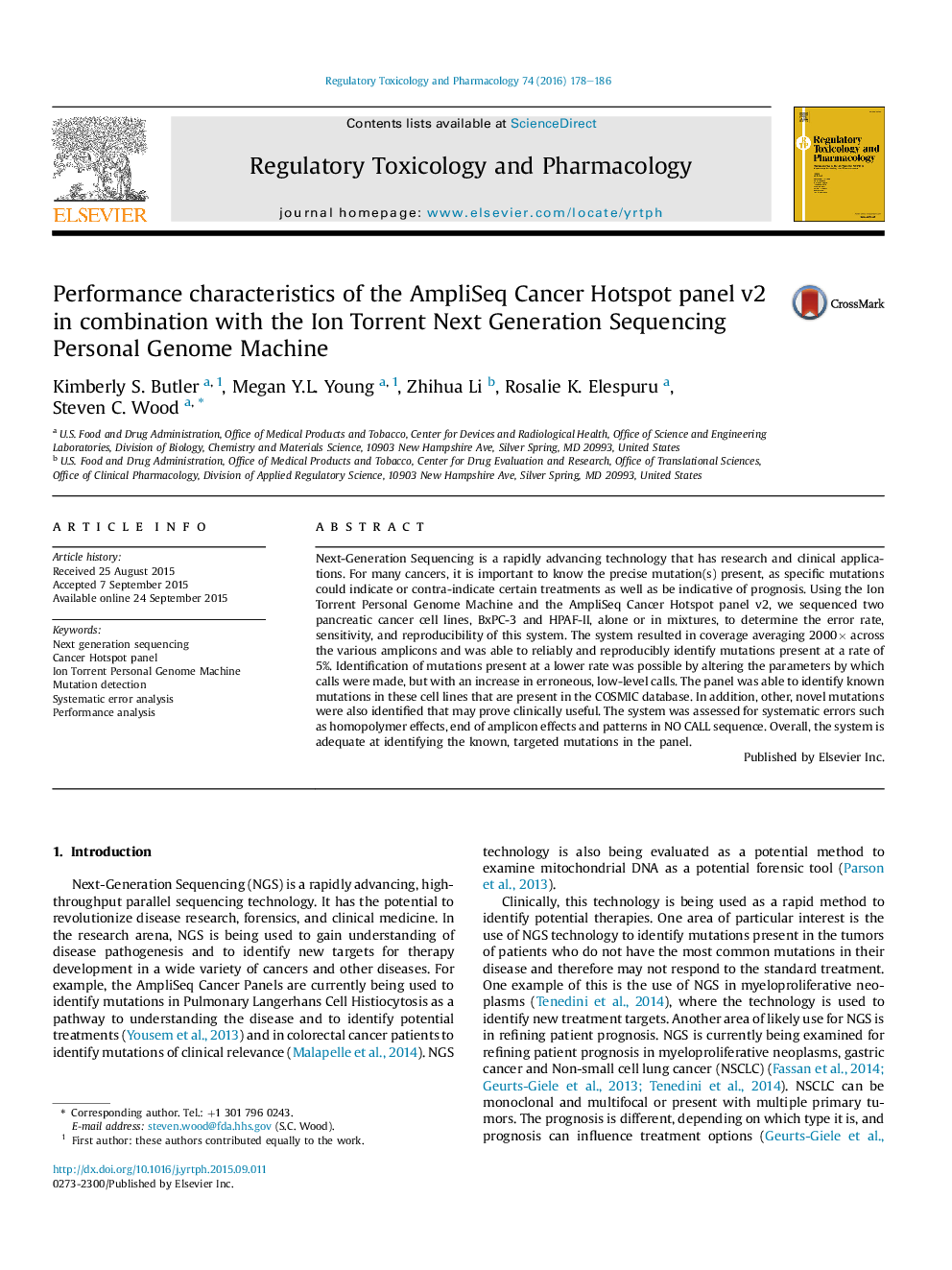| Article ID | Journal | Published Year | Pages | File Type |
|---|---|---|---|---|
| 5856095 | Regulatory Toxicology and Pharmacology | 2016 | 9 Pages |
â¢AmpliSeq Cancer Hotspot panel v2 and Ion Torrent PGM resulted in 2000à average coverage across various amplicons.â¢Reliably and reproducibly identifies mutations present at a rate of 5% using standard settings and parameters.â¢Altering parameters allows identification of mutations present at a lower rate, but increases erroneous, low-level calls.â¢No systematic errors, such as homopolymer effects, end of amplicon effects, or patterns in NO CALL sequence, were found.â¢The frequency of NO CALL varied by mutation type, with deletions having the highest at 6.91%.
Next-Generation Sequencing is a rapidly advancing technology that has research and clinical applications. For many cancers, it is important to know the precise mutation(s) present, as specific mutations could indicate or contra-indicate certain treatments as well as be indicative of prognosis. Using the Ion Torrent Personal Genome Machine and the AmpliSeq Cancer Hotspot panel v2, we sequenced two pancreatic cancer cell lines, BxPC-3 and HPAF-II, alone or in mixtures, to determine the error rate, sensitivity, and reproducibility of this system. The system resulted in coverage averaging 2000Ã across the various amplicons and was able to reliably and reproducibly identify mutations present at a rate of 5%. Identification of mutations present at a lower rate was possible by altering the parameters by which calls were made, but with an increase in erroneous, low-level calls. The panel was able to identify known mutations in these cell lines that are present in the COSMIC database. In addition, other, novel mutations were also identified that may prove clinically useful. The system was assessed for systematic errors such as homopolymer effects, end of amplicon effects and patterns in NO CALL sequence. Overall, the system is adequate at identifying the known, targeted mutations in the panel.
